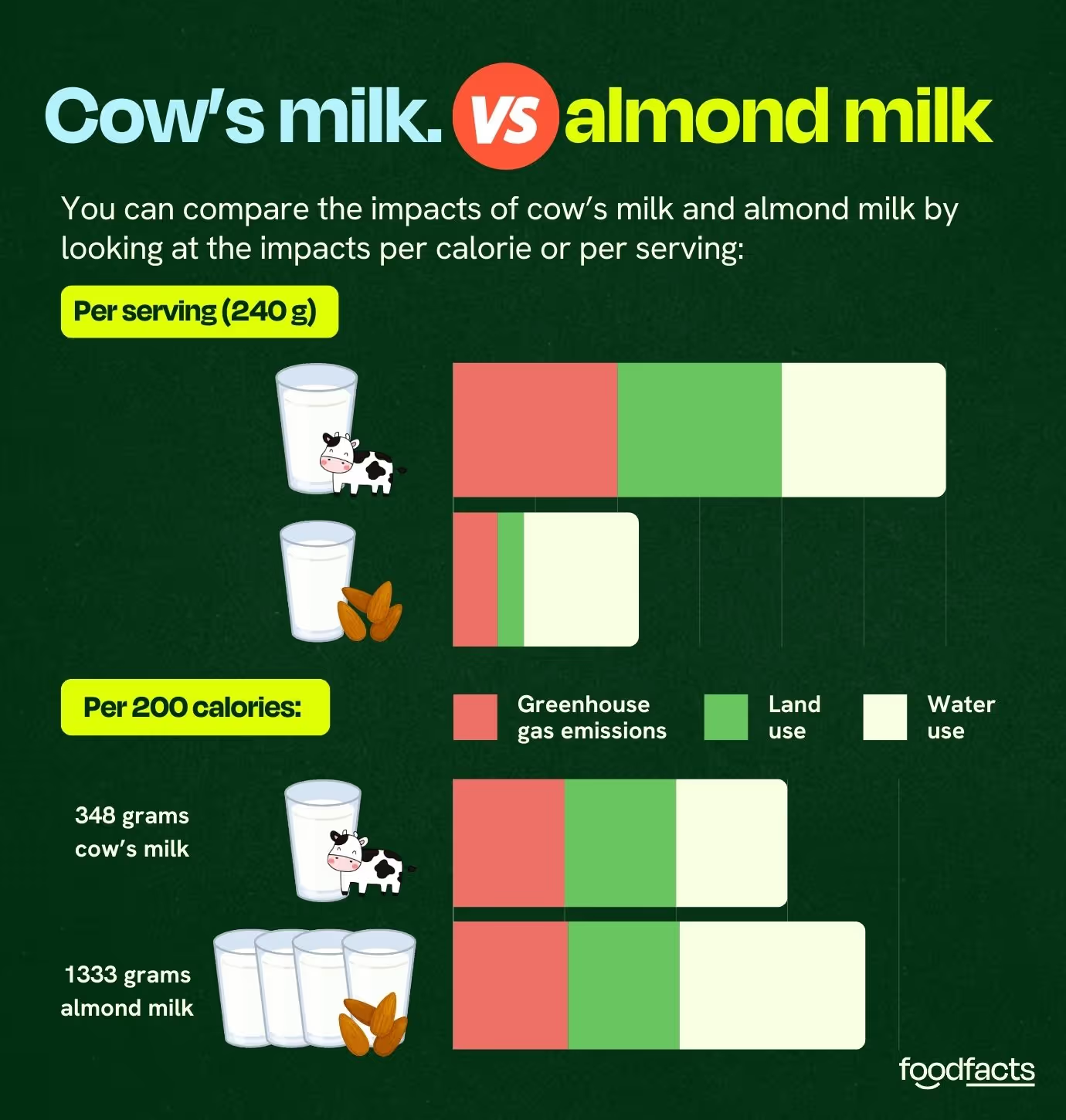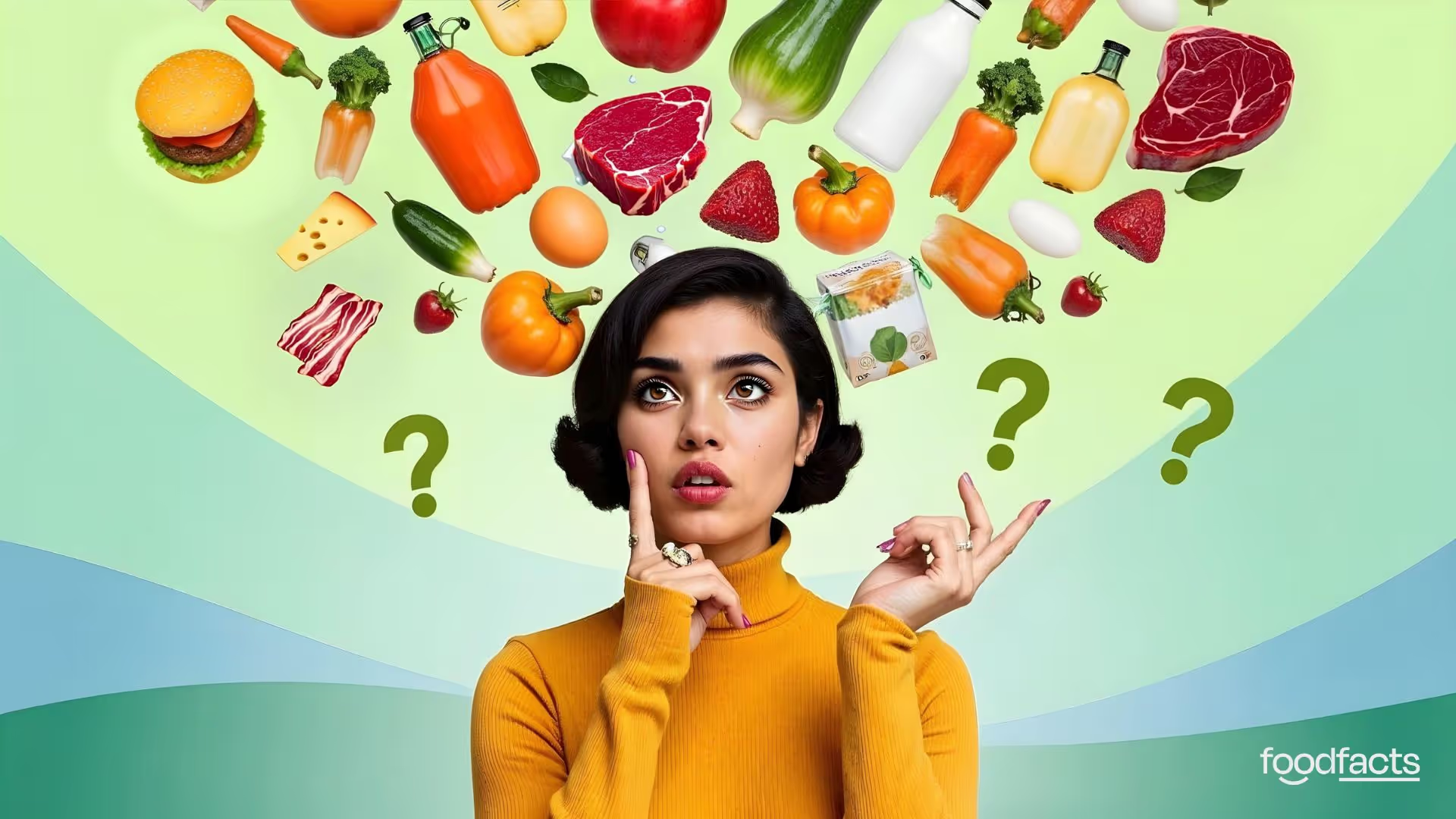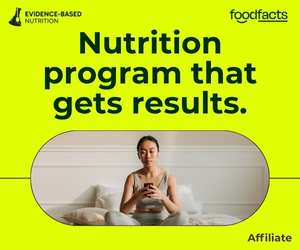
“Almond milk and veggie burgers can harm the environment” Says media on new Oxford University Study; are plant-based foods worse for the environment?





Coral Red: Mostly False
Orange: Misleading
Yellow: Mostly True
Green: True
Learn more about our fact-checking policies
On December 2nd, the Times published an article titled "The vegan staples that are worse for the planet than meat or dairy," later amended to "The vegan staples that are bad for the planet." The article made several bold claims about the environmental impact of plant-based alternatives, including almond milk and veggie bacon, based on findings from a new scientific study published in the journal PNAS. This fact-check explores how accurately these claims reflect the study’s findings and whether the media's framing distorts the broader environmental narrative.
The article misrepresents the study’s overall findings by singling out products like almond milk that were found to use up more water resources. The study emphasises that replacing animal products with a variety of plant-based options can offer health, environmental, nutritional, and cost benefits.
The article’s headline illustrates the outsized influence of media framing on public perceptions of food choices. Sensationalised claims, like those suggesting that plant-based staples are worse for the planet than meat, can mislead consumers into dismissing the broader environmental benefits of reducing animal-based foods.

When reading media claims, pay close attention to context and supporting data. A single metric—like water use—can be emphasised to paint an exaggerated picture. Seek studies or fact-checks that consider the full range of factors, including greenhouse gas emissions, land use, and nutritional value, for a balanced understanding.
Claim 1: Almond milk was worse for the environment than cow’s milk on a per-calorie basis
Analysis: The Times article only presents the results per calorie, whereas the study includes results for the environmental impact both per serving and per calorie. It is true that per-calorie almond milk had a higher environmental impact than cow’s milk. However, per serving of milk, almond milk only had 33% of cow’s milk impact with lower greenhouse gas emissions, land use, and water use, making it better overall for the environment when considering the serving someone might consume.
If you were to replace cow’s milk with almond milk in your coffee or your breakfast, it’s unlikely you would drink 4x the amount of milk to match the calories in cow’s milk. Instead, you would probably replace it with the same serving size, in which case the almond milk has a lower environmental impact. The Times article misses out on this part of the research, presenting a misleading view by suggesting almond milk is categorically worse.

Claim 2: Some fake meat — such as veggie bacon — got a worse overall score than the pork bacon it is designed to replace.
Analysis: In the study, the researchers combined the separate scores given to each product for nutrition, mortality, greenhouse gas emissions, land use, water use, and diet costs to provide each food with an overall score.
It’s true that per calorie, the overall score for pork bacon (0.57) was marginally better than the overall score for veggie bacon (0.46). However, if we look closely at the scores, this difference was driven entirely by the cost of pork vs. veggie bacon. Across every other metric, (greenhouse gas emissions, land use, nutrition, mortality, and water use) veggie bacon performed better than pork bacon.
Additionally, all meat and milk alternatives, including veggie bacon, were associated with reductions in chronic disease risk and overall mortality when compared to animal-based meats. Per serving and per calorie equivalent, veggie bacon had a lower environmental impact than pork bacon with less land use, lower greenhouse gas emissions, and less water use. However, veggie bacon had a higher cost per serving and per calorie.
Claim 3: Vegans hoping to save the planet should stick to eating beans and avoid trendy alternatives such as almond milk and lab-grown meat.
Analysis: Based on the study findings, anyone looking to maximise their environmental impact through their diet would do so by eating unprocessed plant foods like beans, which are optimal across health, environmental, and cost metrics. Swapping a serving of cow’s milk for almond milk would benefit the environment across all metrics, whereas lab-grown meat is not currently sold in the UK for human consumption, so cannot be considered a trendy alternative.
The study does not discourage the consumption of processed meat and milk alternatives like almond milk but highlights the higher water use for almonds on a per-calorie basis. Overall, they note that a range of processed and unprocessed meat and milk alternatives offer substantial environmental, health, and nutritional benefits compared to animal products. The researchers also note the risk of nutritional deficiencies for specific nutrients if consuming a more plant-based diet, such as vitamin B12. Individuals following a plant-based diet should be aware of the need to supplement with vitamin B12.
Claim 4: Popular products designed for vegans were found to be relatively bad for the climate, including oat milk, almond milk, and veggie burgers.
Analysis: The study explicitly states that processed plant-based products, including oat, almond milk and veggie burgers, offer substantial environmental benefits compared to animal-source foods, though they are less optimal than unprocessed alternatives. The media article misrepresents this nuance.
Claim 5: Tempeh is a surprising runner-up as it retains the nutritional properties of soybeans without much processing.
Analysis: This claim accurately reflects the study’s findings. Tempeh is highlighted as a strong performer due to its high nutritional value, lower environmental impact, and moderate cost.
Broader Implications
The apparently revised headline, "The vegan staples that are bad for the planet," replaced inaccuracies in the original, "The vegan staples worse than meat and dairy," to better align with the study's findings. While this adjustment improves factual accuracy, it also reflects a broader issue in sensational media reporting. Headlines aim to grab the public’s attention with shocking claims, which can distort scientific findings while reinforcing misconceptions.
Such a misleading headline is detrimental to those who read it since it can direct people away from choices that are factually better for their health, their pocket, and the environment. Even worse, it can lead to people consuming more of what could compromise their health and the environment, moreover collectively.
Summary
The article singles out almond milk, which was the only milk that ranked worse than cow’s milk on one metric (water usage), on a per-calorie basis; it also singles out veggie bacon, which ranked worse than pork bacon on the cost metric, but was found to have a better nutritional and environmental profile than its meat counterpart. As a result, the reader is left with a skewed perspective, which comes at the expense of the big picture: yes, it is best to prioritise unprocessed sources of plant foods. But variety is also important, and the study shows that whether processed or unprocessed, replacing meat and dairy products with plant alternatives can have substantial advantages. Although the article does go on to make that distinction, the focus on the few plant alternatives which did not score as high as unprocessed products comes at the very start, following a misleading headline. Unfortunately, in a fast-paced world where people are bombarded with information, most people do not read past headlines, highlighting the importance of factual accuracy when reporting on scientific studies.
The article concludes with the need for dietary shifts, without which it might get increasingly difficult to tackle the climate crisis. However, the sensational headline reinforces misconceptions that plant-based foods might not be as environmentally friendly as we might think, which can cause confusion and potentially affect decisions.
Our rating
Misleading Potential ⭐⭐⭐⭐
Balance ⭐⭐
Factuality ⭐⭐⭐⭐
Clarity ⭐⭐⭐
The misleading rating is driven by the lack of balance provided by the article. Although the study’s findings are accurately depicted towards the end of the article, its introduction heavily focuses on the few products which did not rank as high as unprocessed products, without fully explaining which metrics the lower ratings were associated with. This imbalance could also cause some confusion among readers, as the tone of the headline and introductory statements does not quite match the article’s more balanced conclusions.
You can find out how we rate media pieces here.
We have contacted The Times and are awaiting a response.
Stand Against Nutrition Misinformation
Misinformation is a growing threat to our health and planet. At foodfacts.org, we're dedicated to exposing the truth behind misleading food narratives. But we can't do it without your support.
Sources
Marco Springmann (2024). “A multicriteria analysis of meat and milk alternatives from nutritional, health, environmental, and cost perspectives.” https://doi.org/10.1073/pnas.2319010121
Wayback Machine. https://web.archive.org/



foodfacts.org is an independent non-profit fact-checking platform dedicated to exposing misinformation in the food industry. We provide transparent, science-based insights on nutrition, health, and environmental impacts, empowering consumers to make informed choices for a healthier society and planet.

Was this article helpful?

















.svg)
